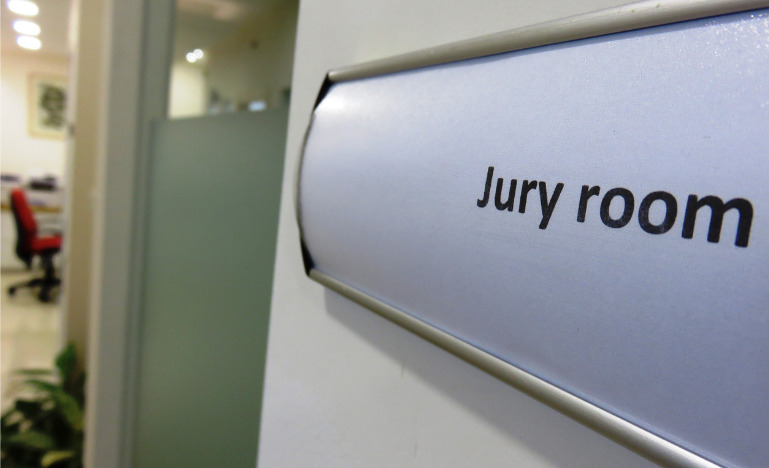Getting jury trials back on track
We need to look at both short-term fixes and long-term solutions

During his annual press conference last week, Chief Justice of the Supreme Court of Canada Richard Wagner warned that the justice system in Canada was not prepared for a pandemic emergency, and that it should be time to consider new initiatives as a result of the crisis.
"To do nothing would be irresponsible," Wagner said. "These are not simple challenges and there are no simple solutions. But we have some of the best minds in the country working on these problems, not just through our action committee [with Minister of Justice David Lametti], but also through the Canadian Bar Association, the Advocates Society and others."
"All stakeholders in the justice system have a responsibility to contribute to solutions," Wagner added. "I am confident the changes we make will make our justice system more resilient and more efficient in the years to come."
In particular, Wagner pointed to addressing jury trials being halted by the pandemic as an immediate priority.
"We worked on guidelines which will be published very soon and at the same time we discussed ideas on issues that could help in the long run, could help improve the justice system," Wagner said of the work of the action committee. "Many of those ideas come from judges, lawyers, experts in that field. They are on the table, they are discussed. Eventually [they] could lead to some amendments to the Criminal Code if Parliament decides to do it, but at the end of the day, that's up to Parliament to decide those issues."
"We have to find ways to facilitate the holding of those jury trials," Wagner said. "There are many ways to do it."
One idea that has been floated is to give presiding judges the discretion to hear cases in different regional jurisdictions if there are no local courthouses large enough to accommodate a jury trial safely. Others include introducing evidence through video conferencing, or possibly reducing the number of required jurors.
"It's up to Parliament to decide those issues, but it's on the table," said Wagner. "It was discussed. There are other types of initiatives as well that could be advanced. I think it's the right time to be proactive, the right time to try new things and not simply to find the immediate remedy to an existing crisis but think also at the same time for the longer term."
The challenge, says Kevin Westell, the chair of the Criminal Defence Committee of the Trial Lawyers Association of BC, is that the right to a jury trial on an indictable offence is constitutionally protected. Any alterations that impact the substance of a right to a jury will become subject of potentially lengthy constitutional challenges.
"This isn't something that could happen quickly," says Westell, also a founding partner at Pender Litigation in Vancouver. "In terms of moving jury trials to neighbouring jurisdictions where there are more suitable courthouses, that can happen already. But for some, this may be seen as problematic for having serious crimes tried within the community that was affected by the crime. That's valued within our criminal justice system."
Potentially reducing the size of juries would be challenged by an accused and their lawyers, Westell adds. Changing the size of the jury is probably easier said than done since the body has long been understood to be composed of 12 jurors, who either convict or acquit unanimously.
"For the accused, all they need is one person with reasonable doubt that could be the difference between them and a conviction," says Westell. "I don't see it as likely that accused and their counsel are going to peacefully give up the right to a full complement of jurors."
As for running a jury trial by video conference, Westell is skeptical. He points to the risk that jurors will be distracted by circumstances at home.
However, he cites British Columbia's experience with rigorous pre-trial conferences, which has helped to remove matters from the system that shouldn't take up trial time – something that he feels has been a positive for the system.
John Struthers, president of the Criminal Lawyers Association, echoes the sentiment. We need to take a closer look at what is being prosecuted.
"The inventory is enormous, but one-third of the charges are administration of justice offences, which means failing to comply with bail or probation," he says. "And as the Supreme Court has also recently stated, there are too many bail conditions, and that needs to change as well," says Struthers, referring to the recent ruling in R. v. Zola , in which the top court issued a reminder that all involved in the bail system must act with restraint.
And while there needs to be a wholesale re-evaluation of the criminal justice system -- especially with regard to the failed "war on drugs" -- Struthers says that there are some quick fixes that should be looked at.
"Right now, a defence lawyer cannot re-elect to do a murder trial without a jury," says Struthers. "Maybe that should change – that might speed things up. The government in recent years has taken away an awful lot of tools, including conditional sentences, they've made an awful lot of cases impossible to deal with because of mandatory minimum sentences as they've given much more power to prosecution in negotiations."


